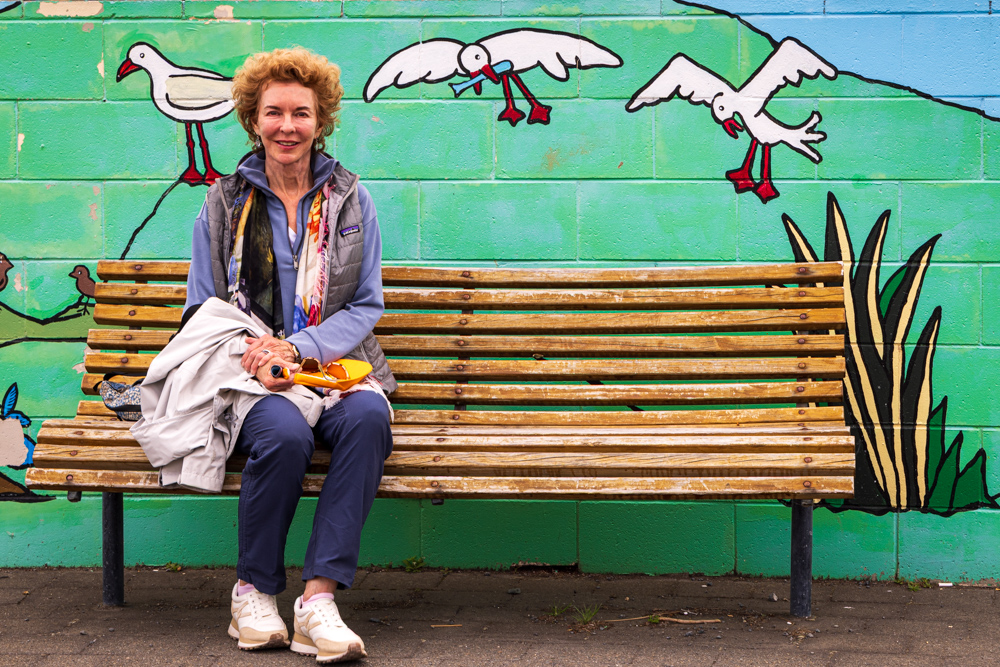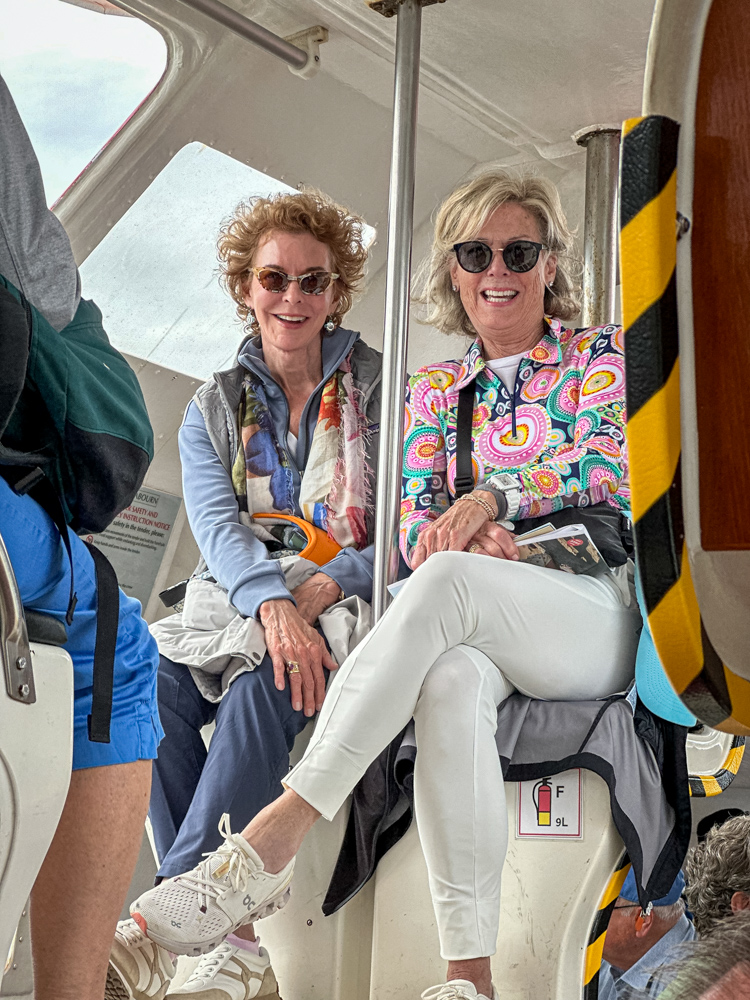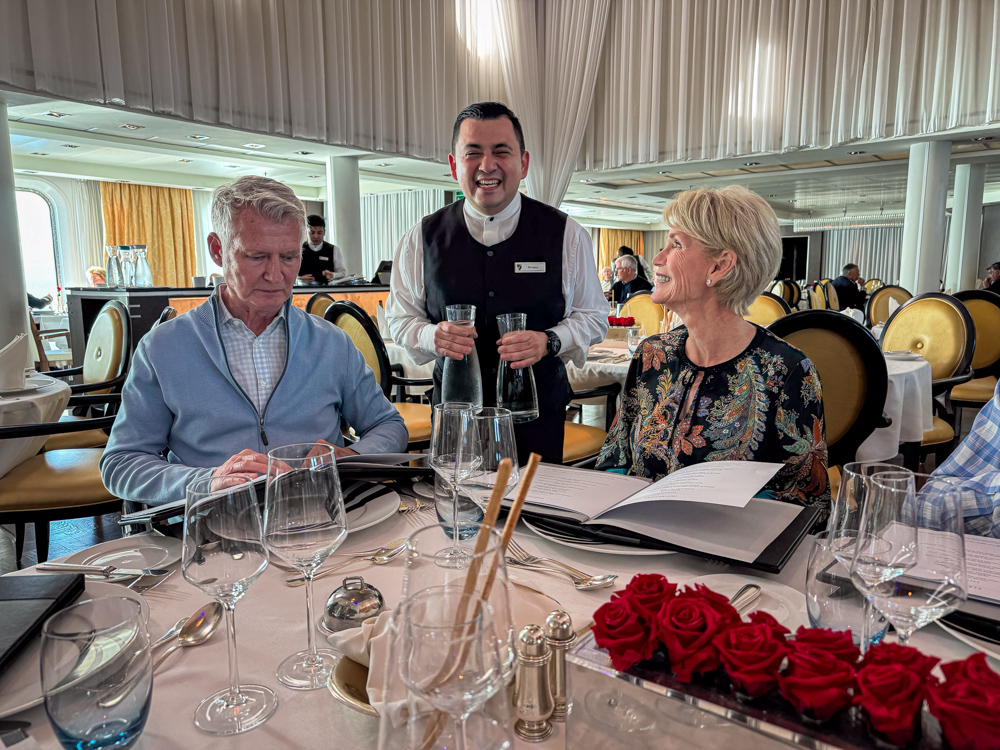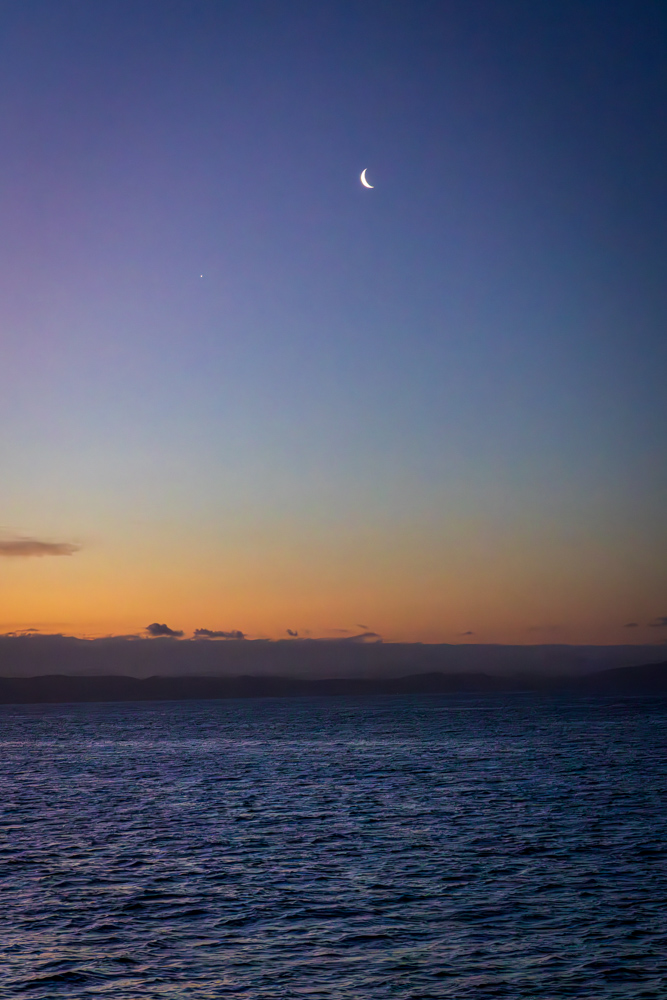Sunday, 2 February 2025 - Today would be a big day. I loaded up my big lens for the Albatross Encounter
excursion. It was a tiny
boat holding about 10 people. I snagged a seat at the rear, so I could take pictures port or starboard.
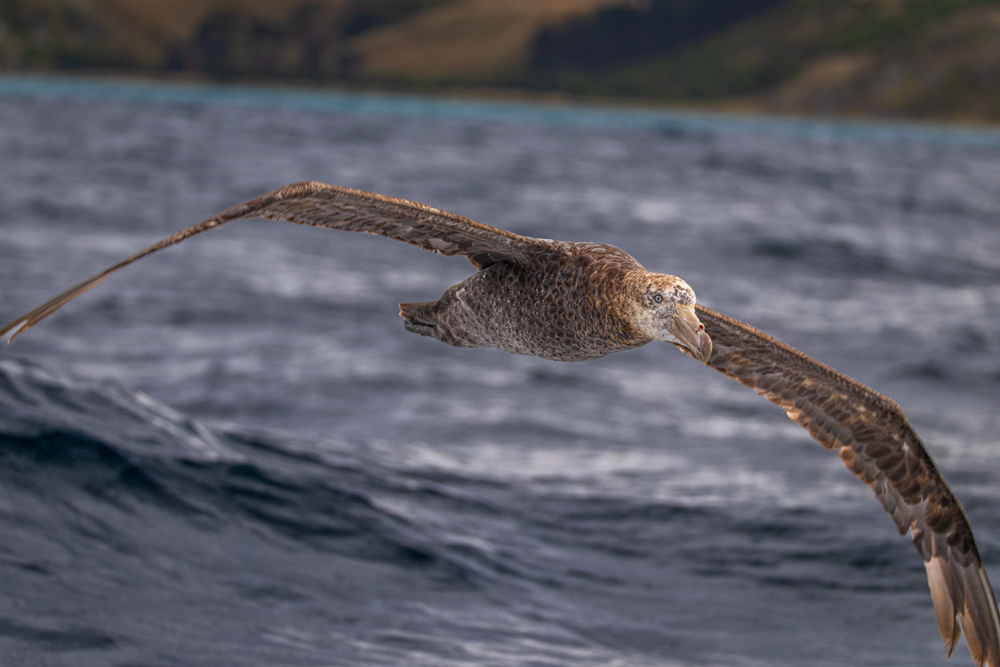
It is a Northern Giant Petrel. The name "petrel" refers to the Biblical account of Saint Peter walking on water, which describes the way these birds run on top of the water as they get airborne. We saw this behavior over and over as these huge birds took to the air.
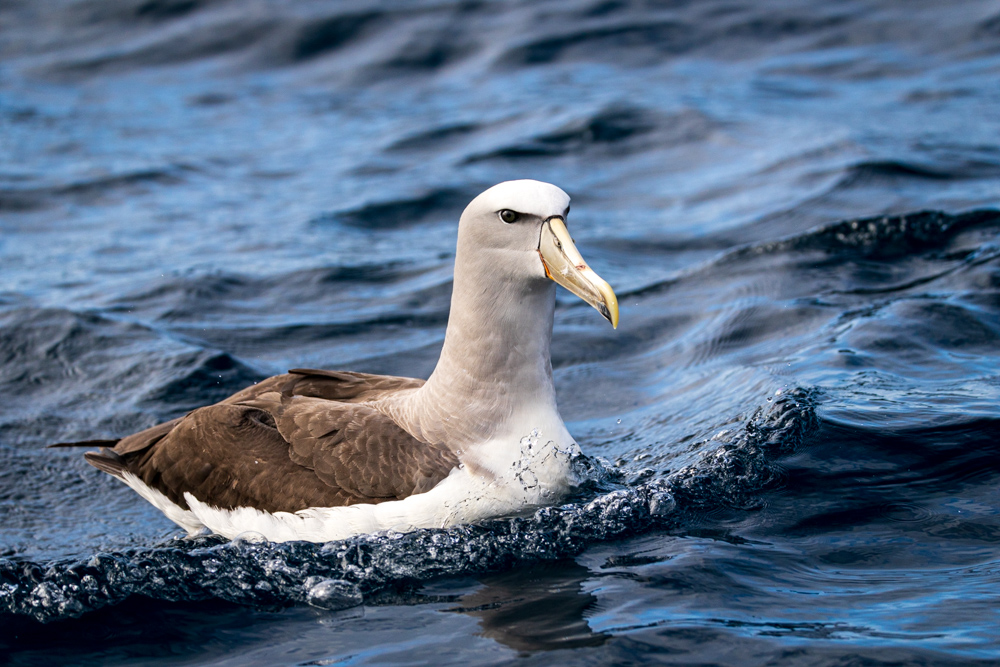
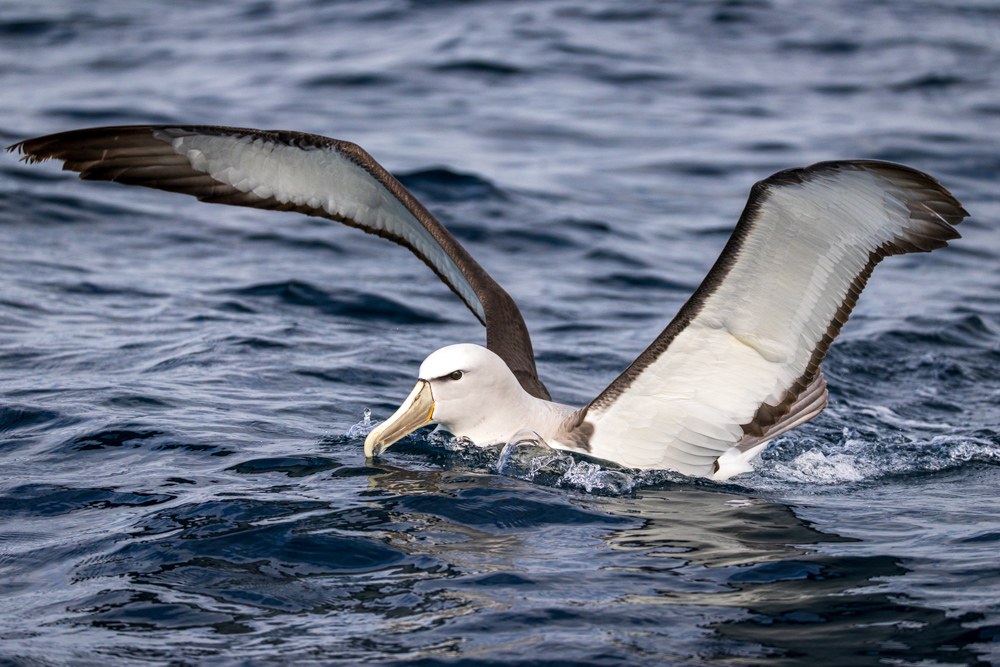
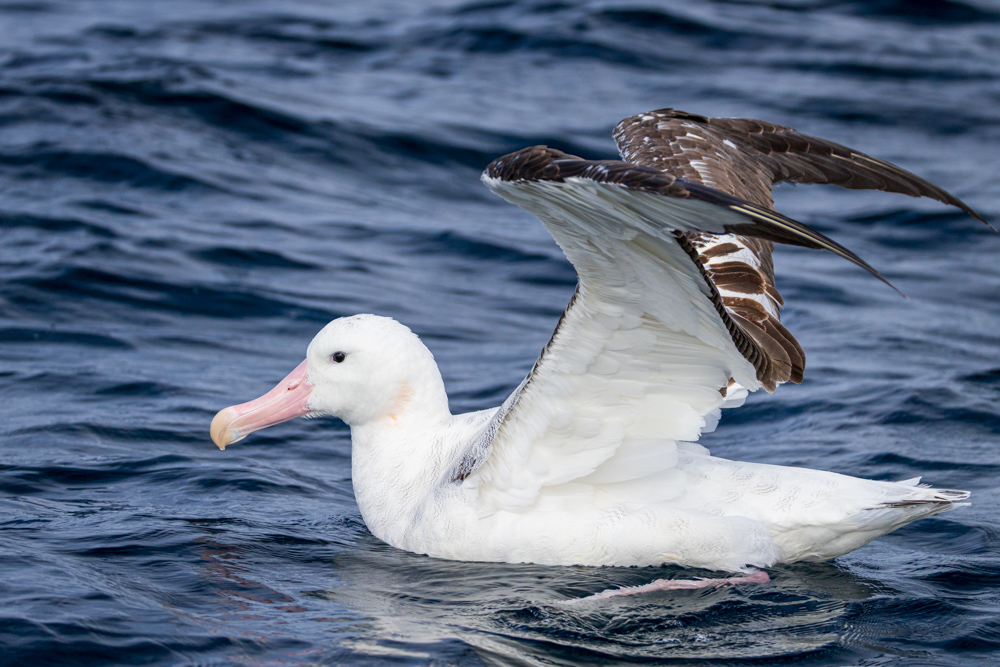
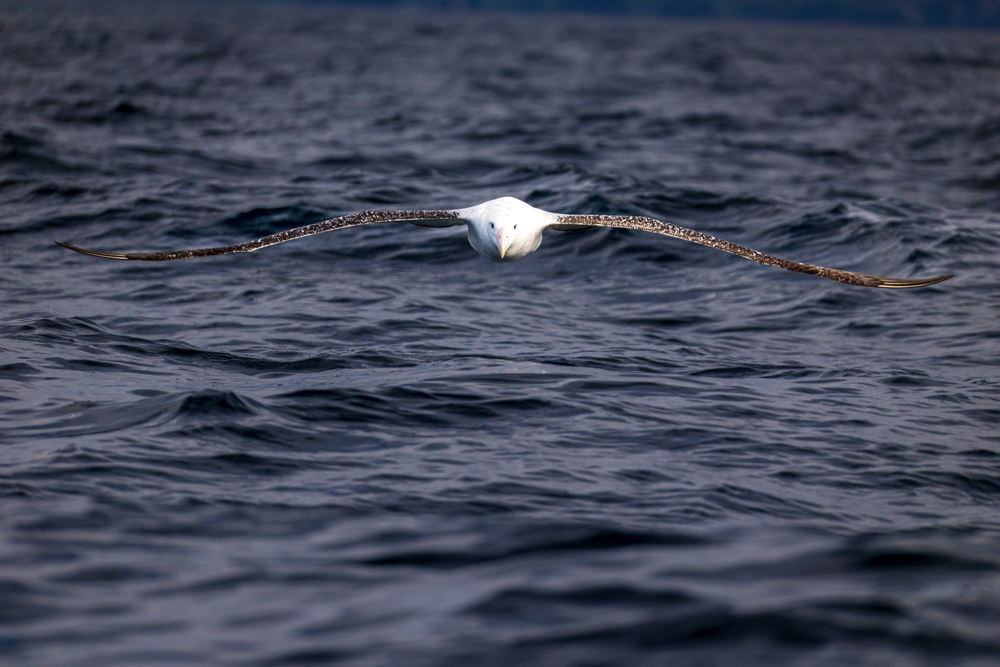
The boat went very far out and then placed a small cage with dead fish off the end of the boat. This brought all kinds of birds to the small boat.
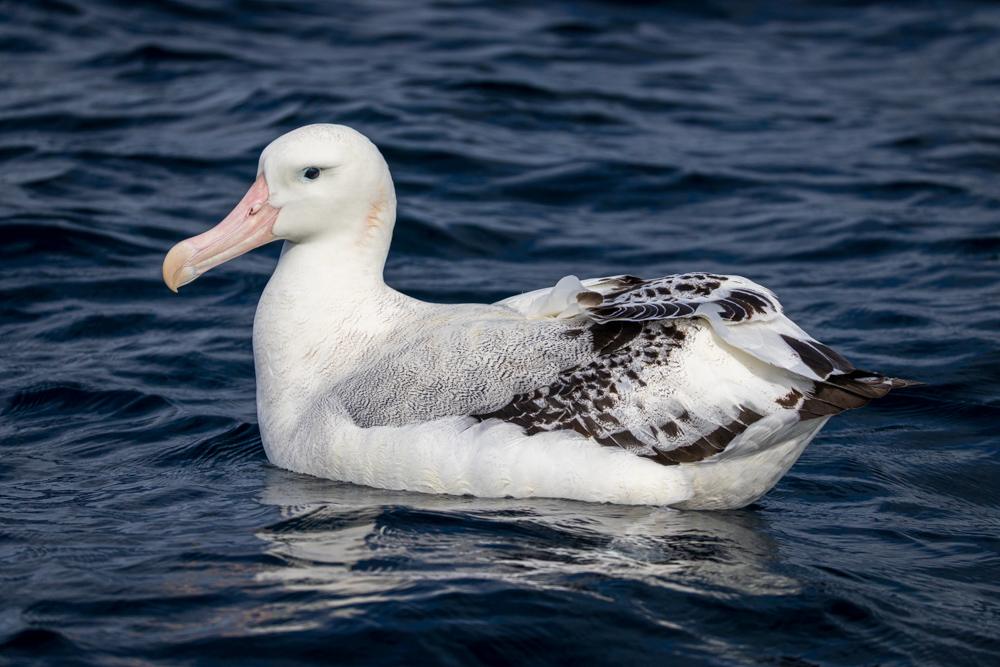
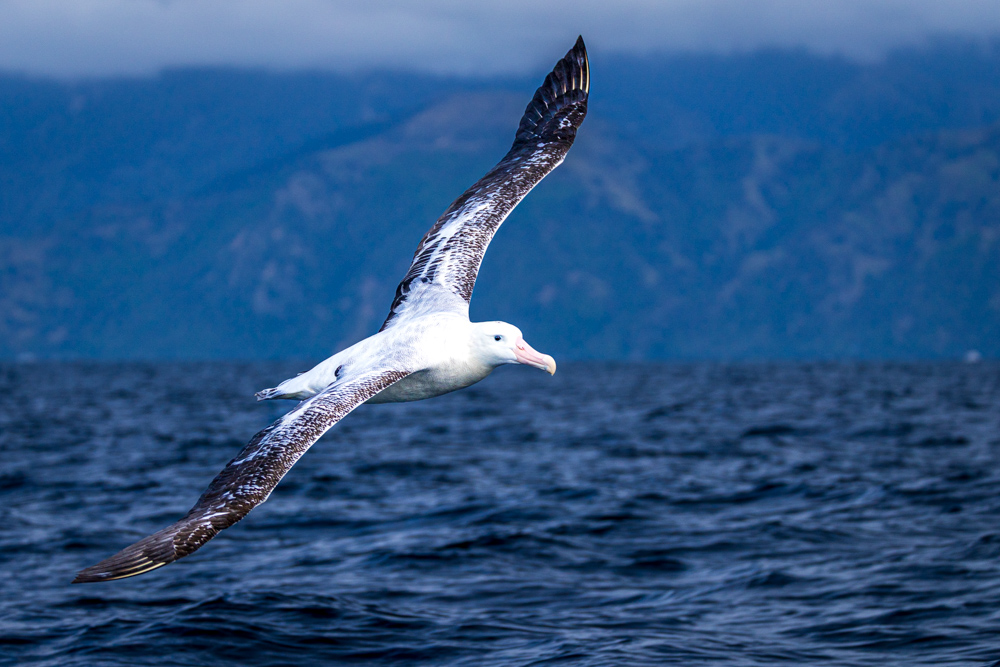
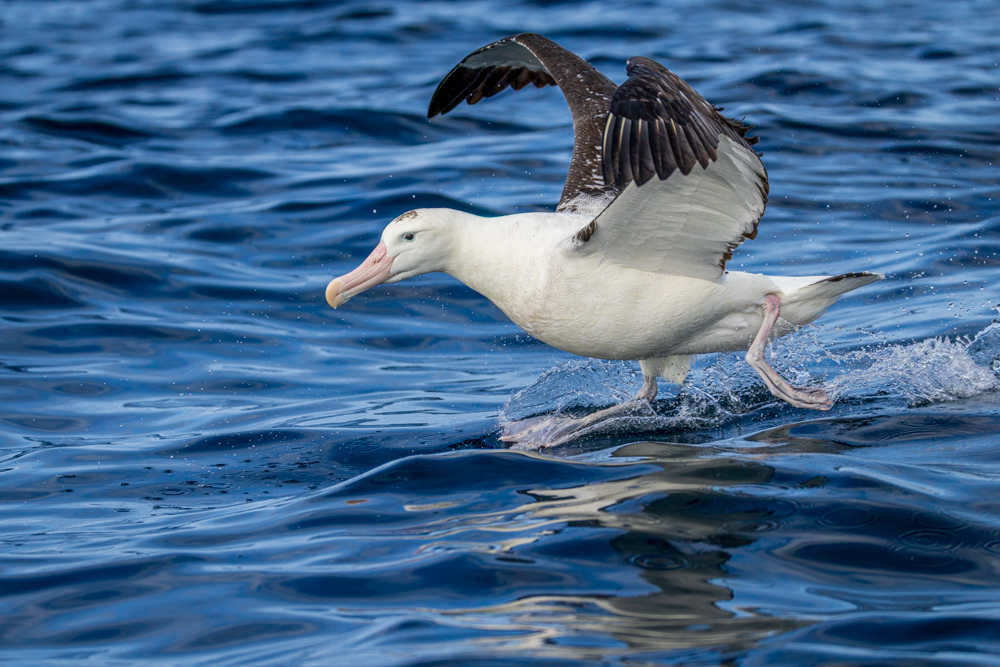
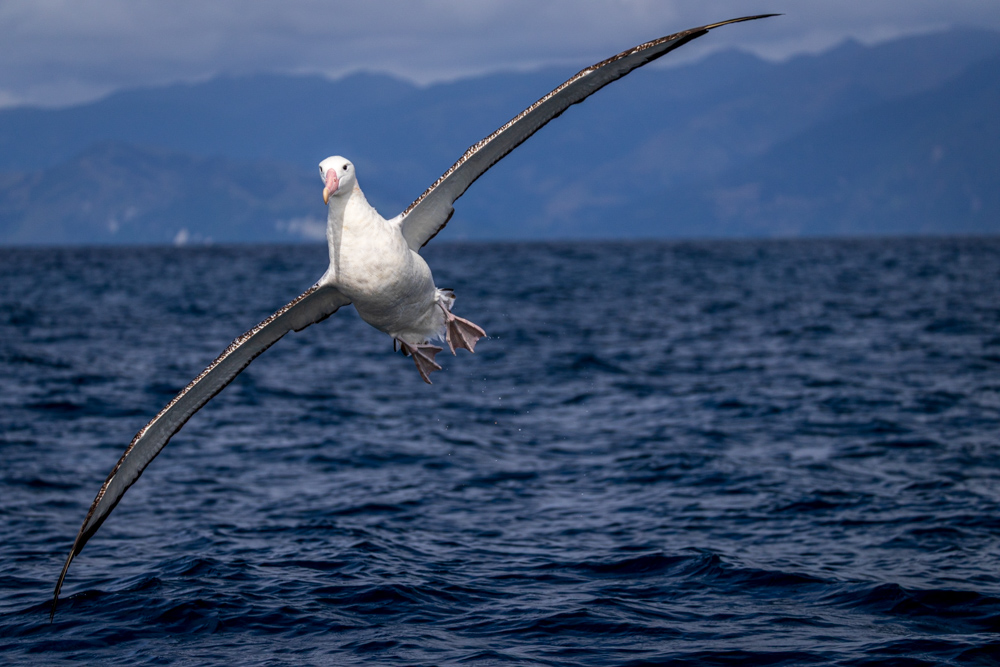
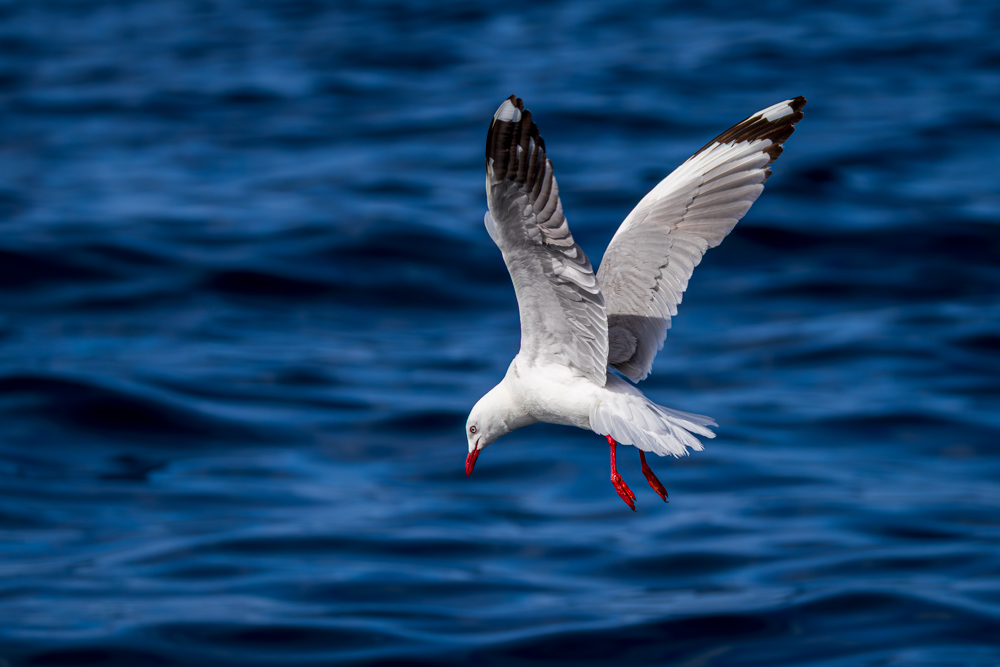
The birds create pair bonds.
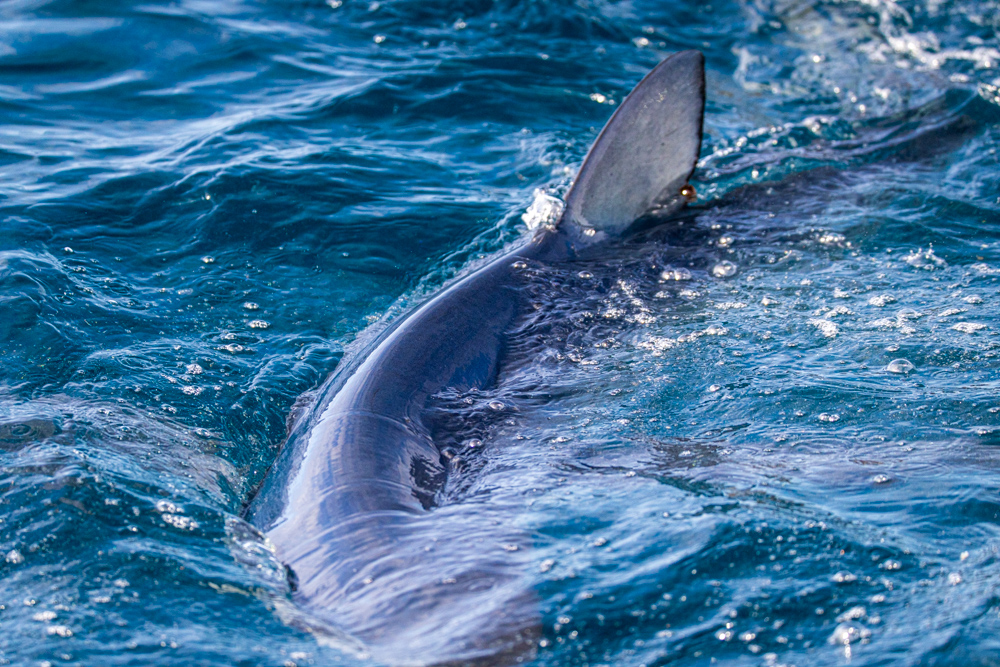
It was a small shark and caused quite a disturbance on the boat.
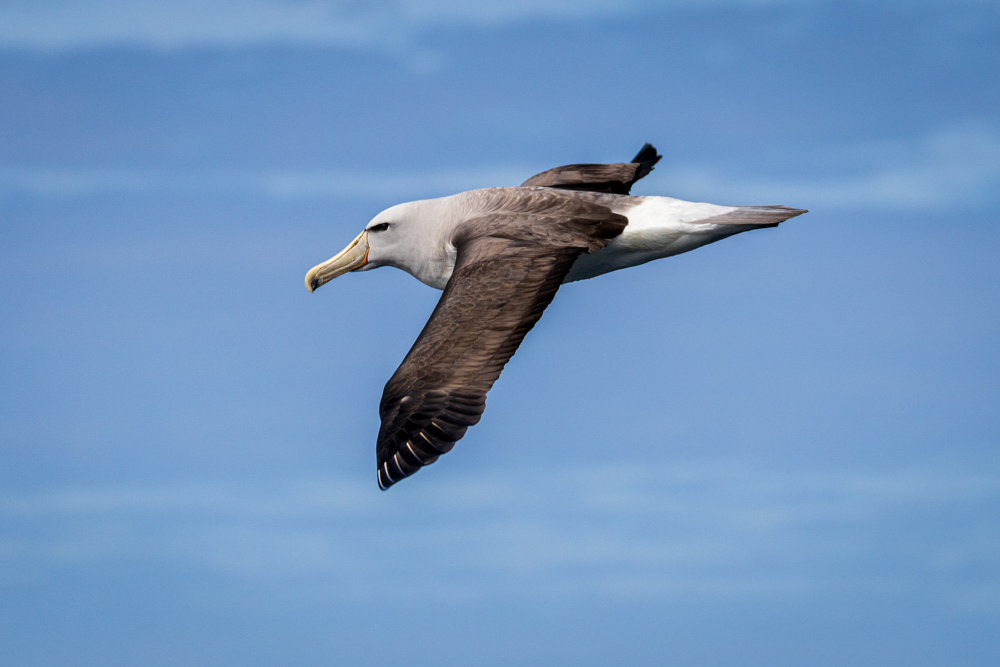
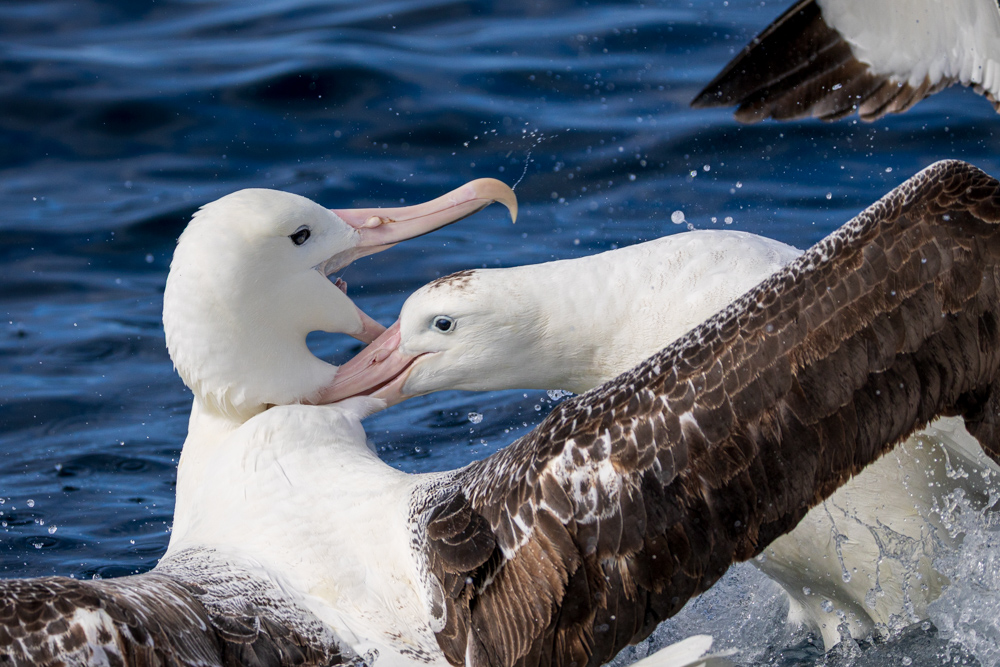
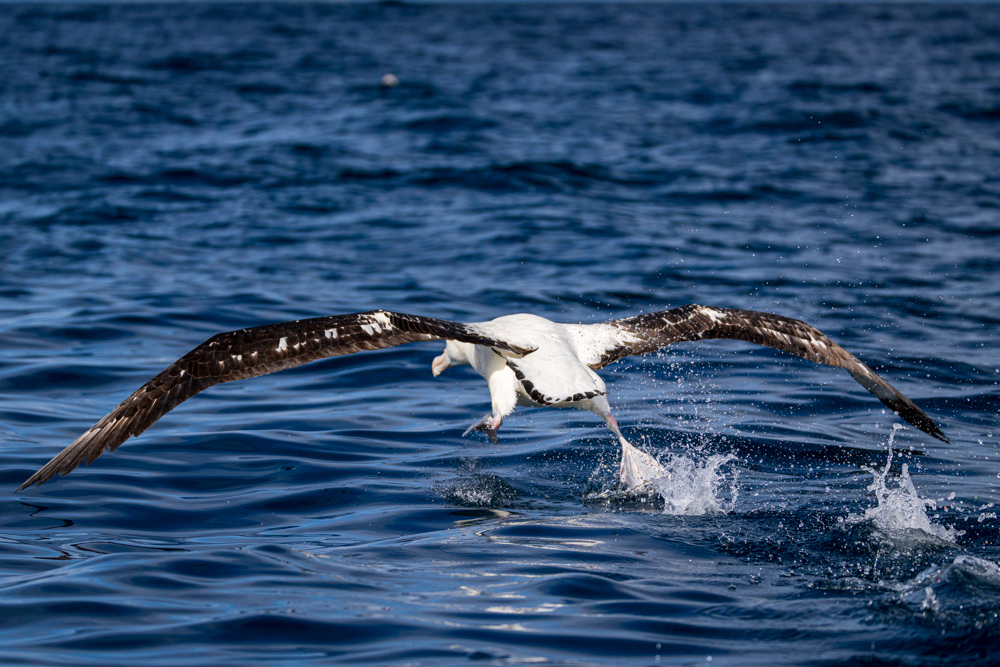
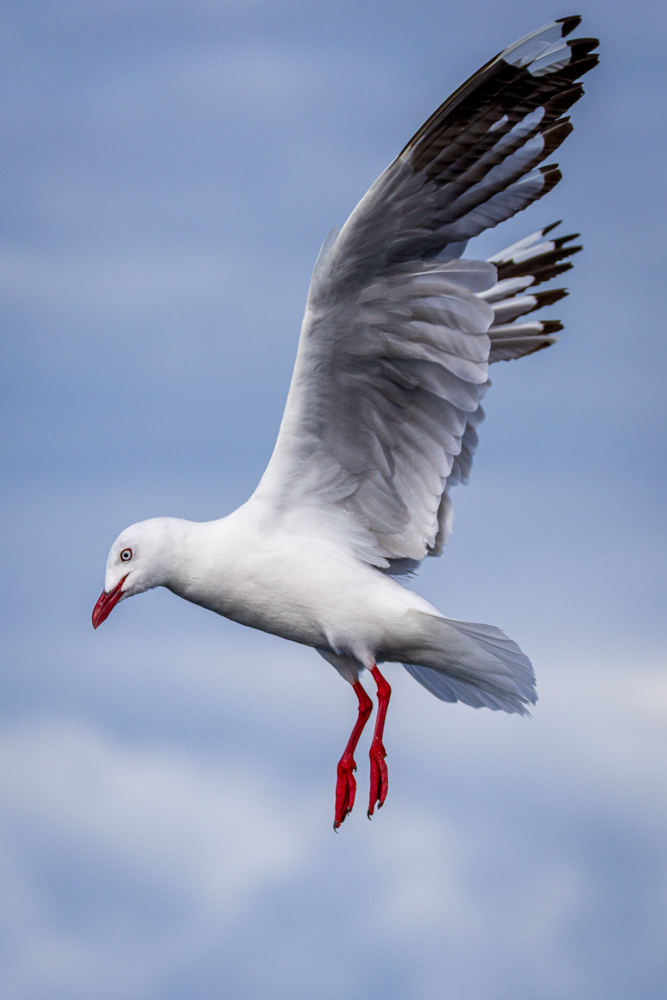
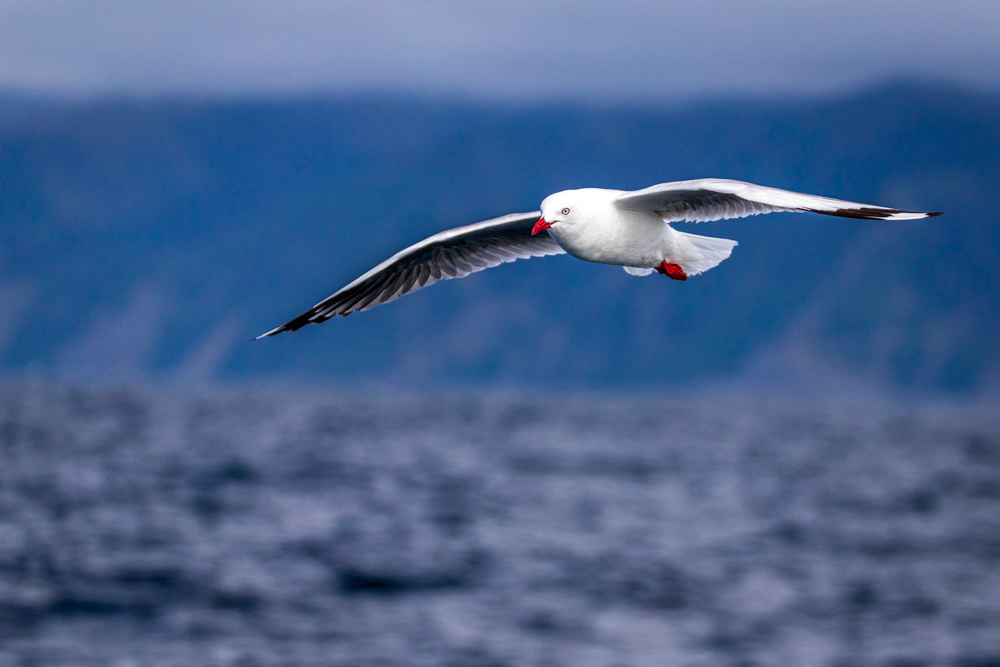
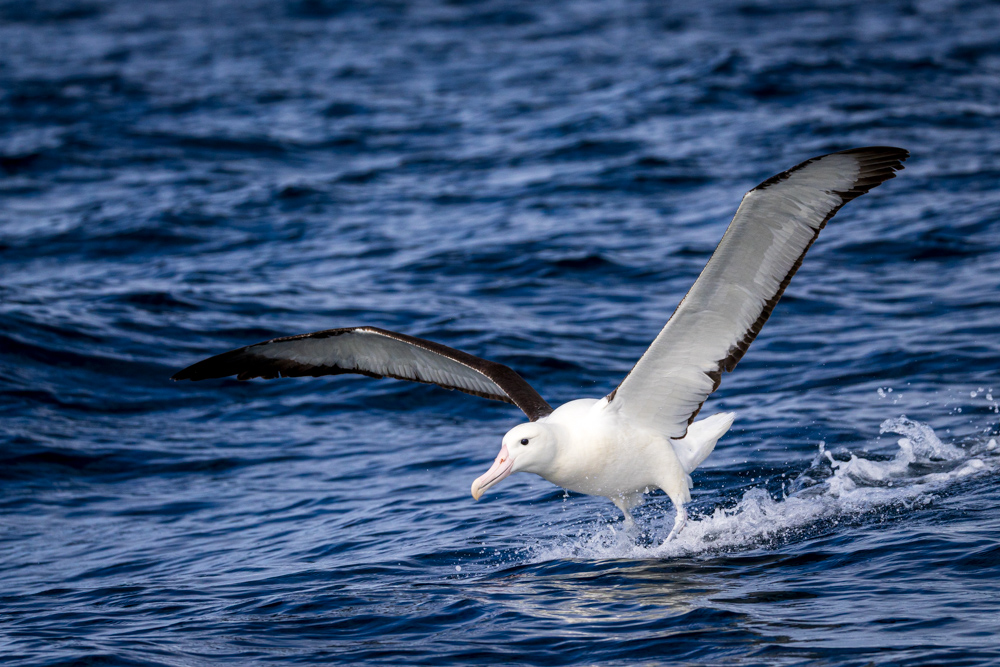
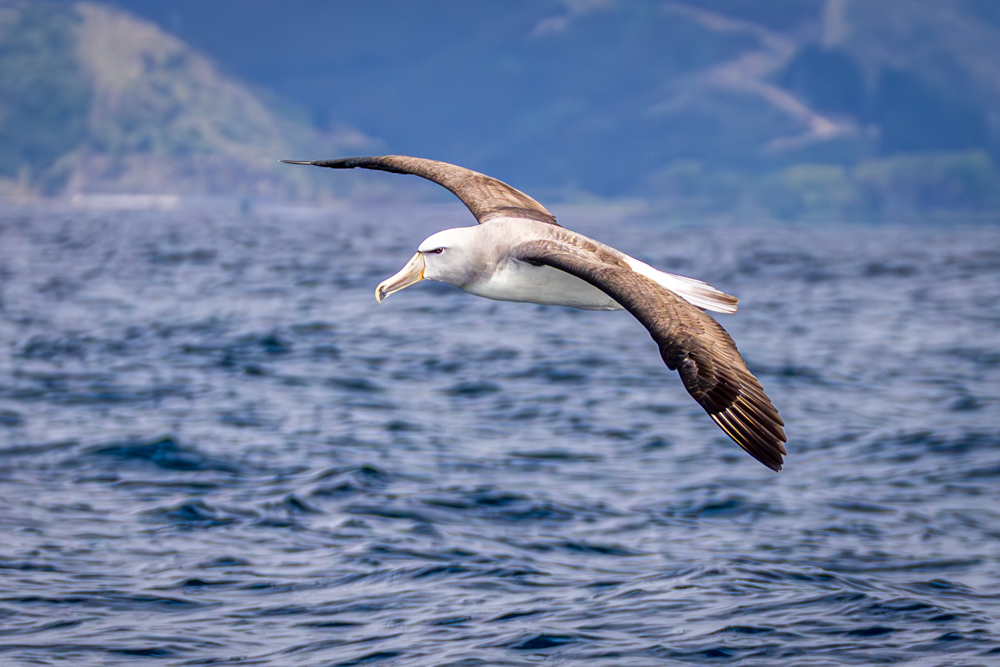
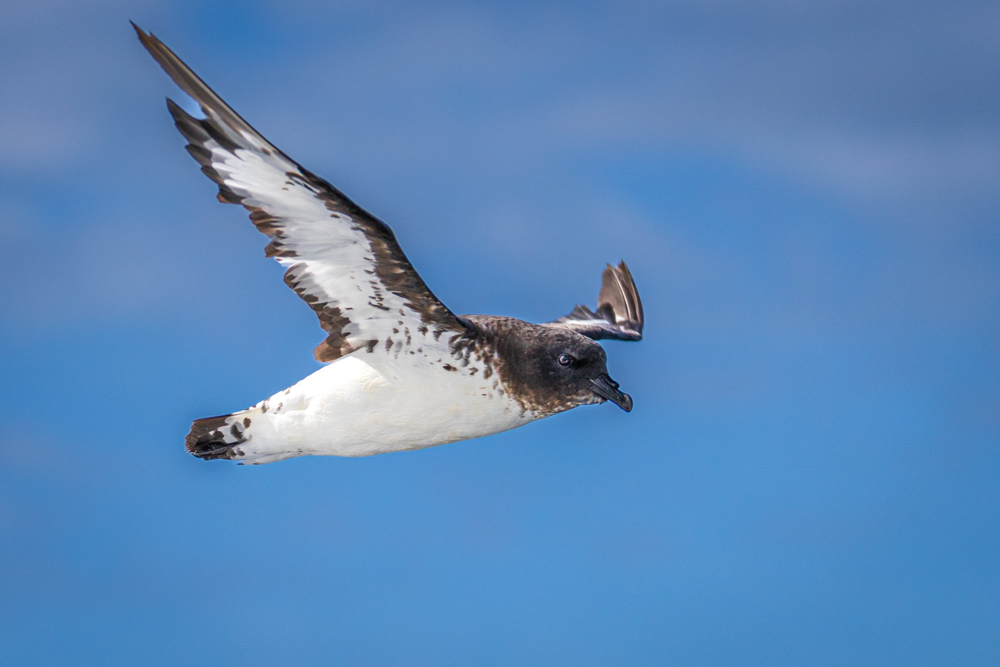
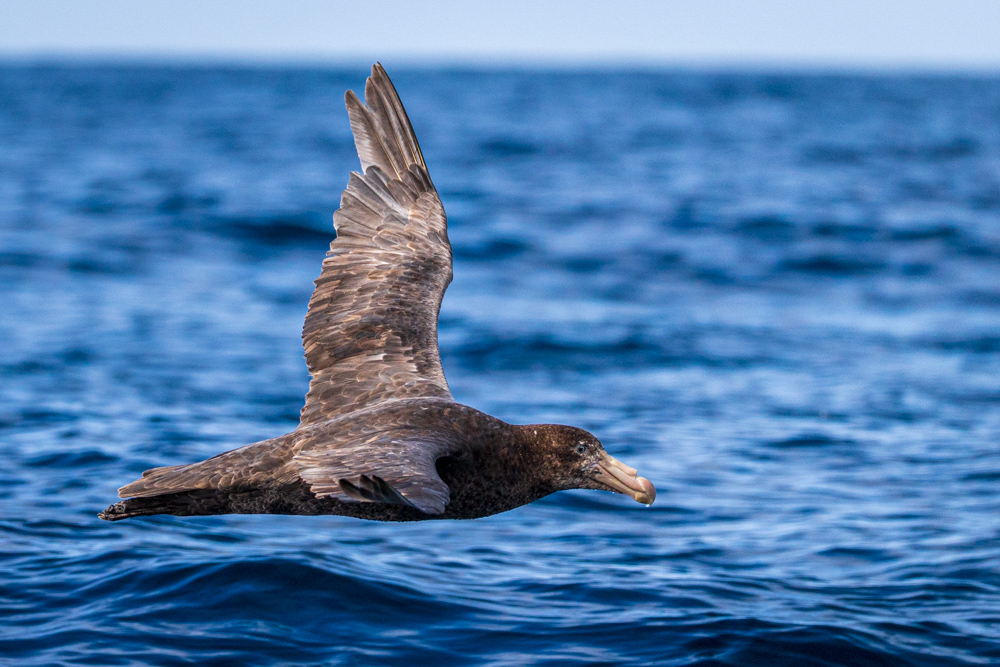
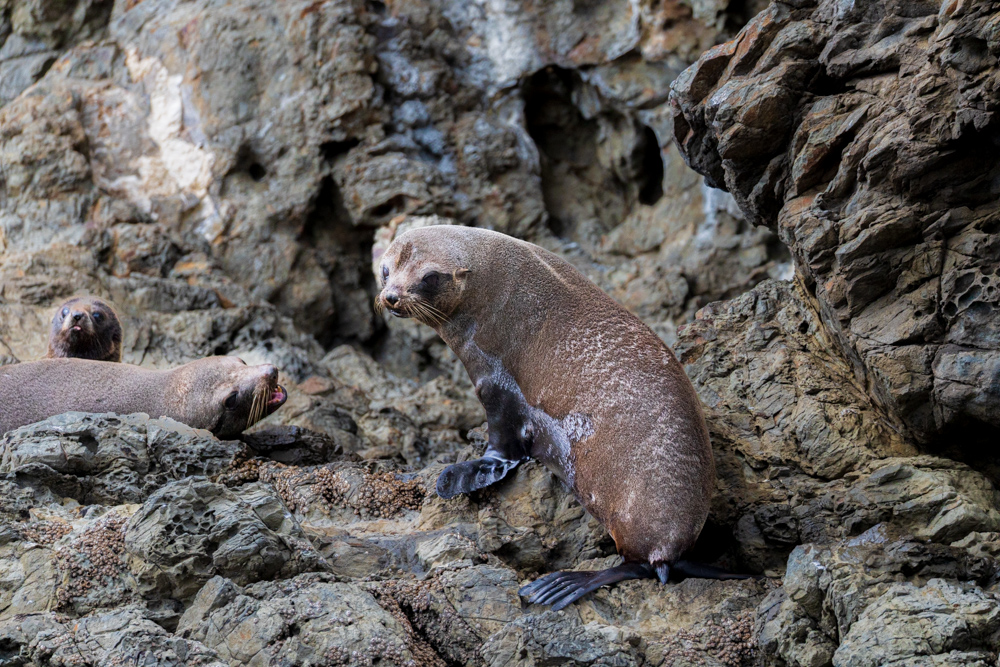
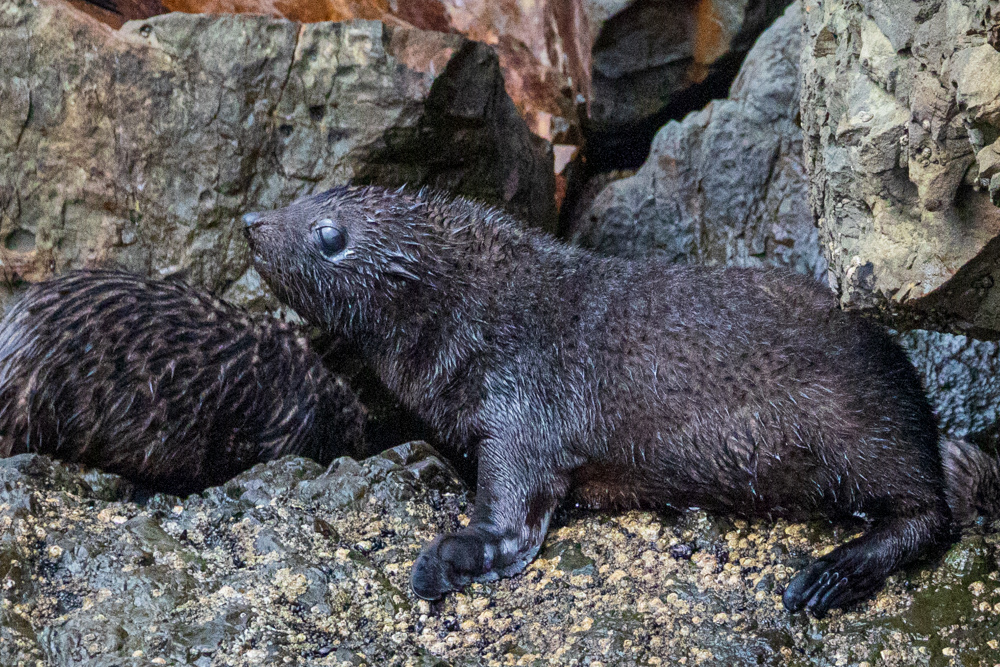
Here is a very young seal scrambling among the rocks.
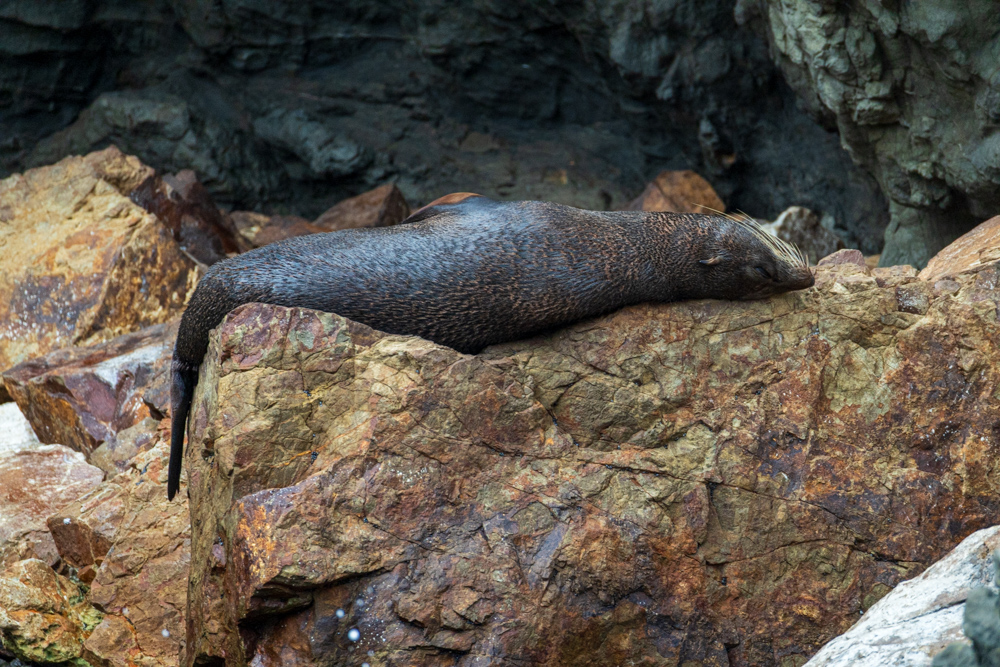
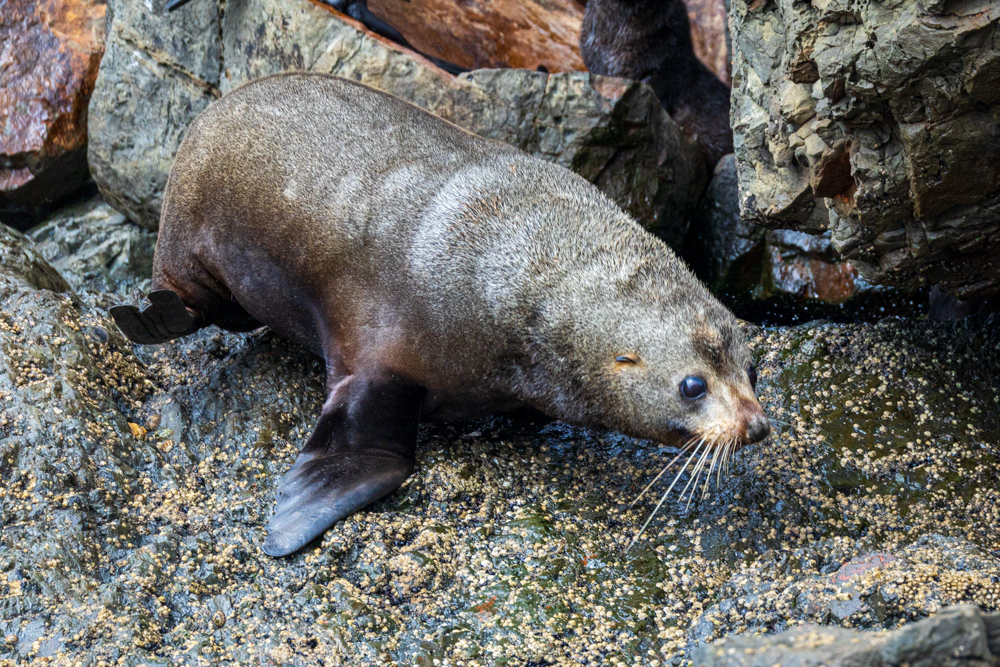
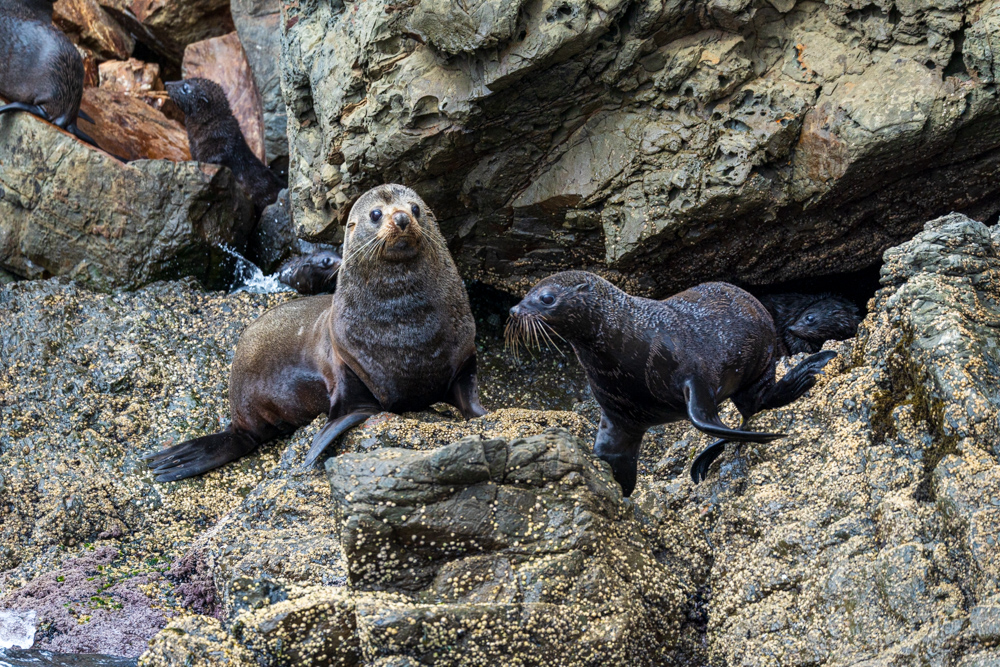
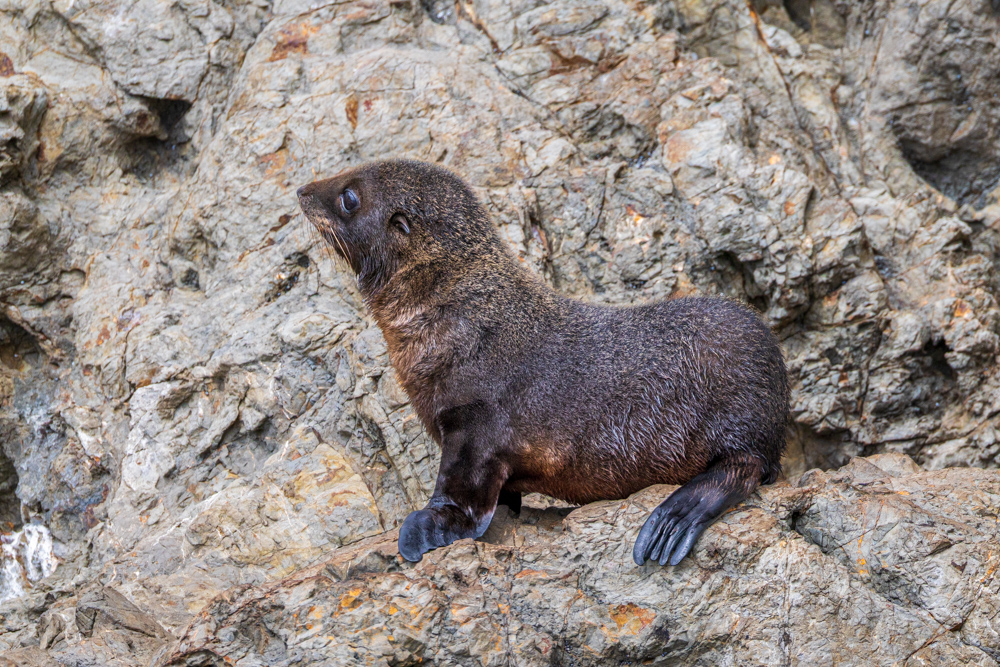
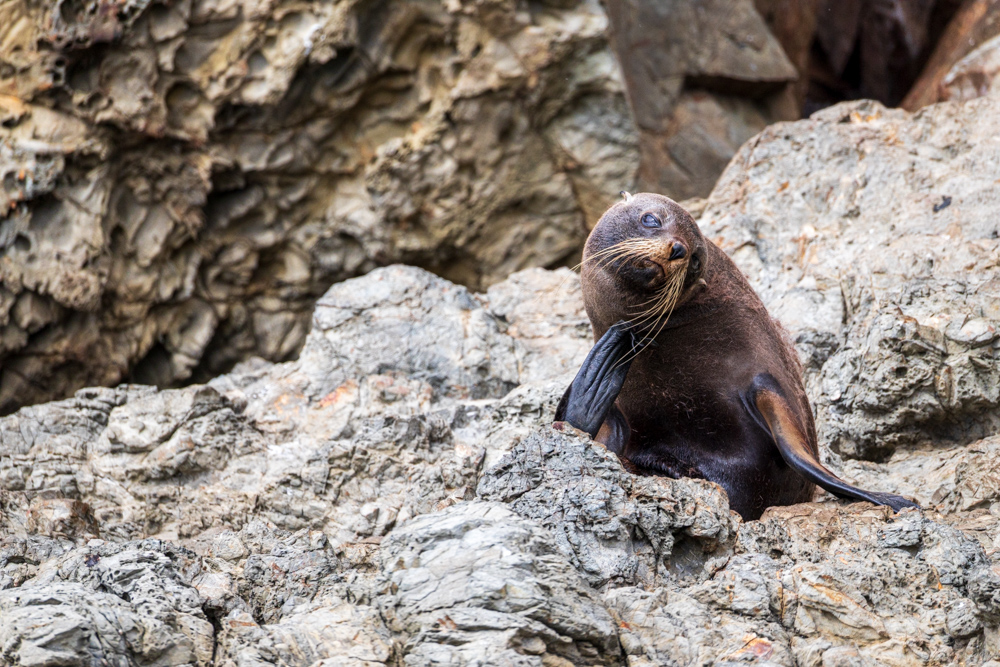
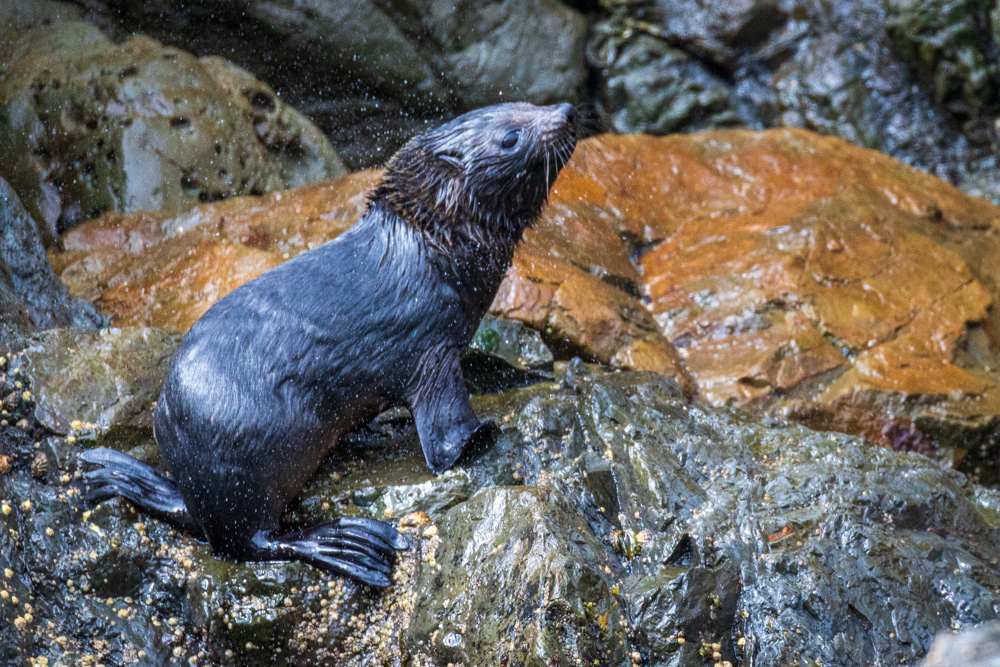
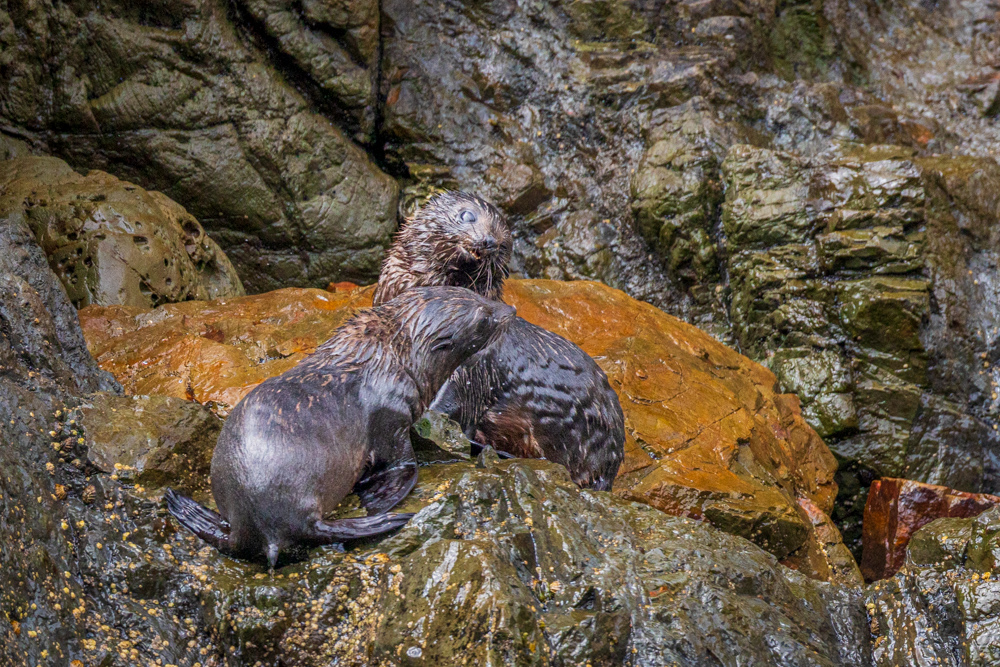
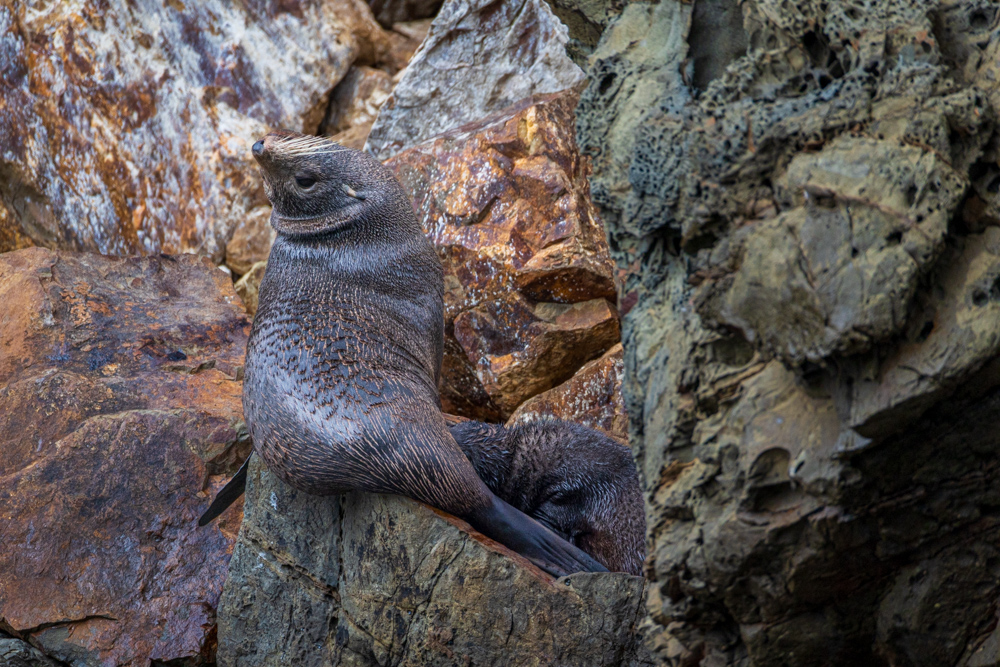
The boat stayed at the rocks for a long time, allowing us to get plenty of pictures.
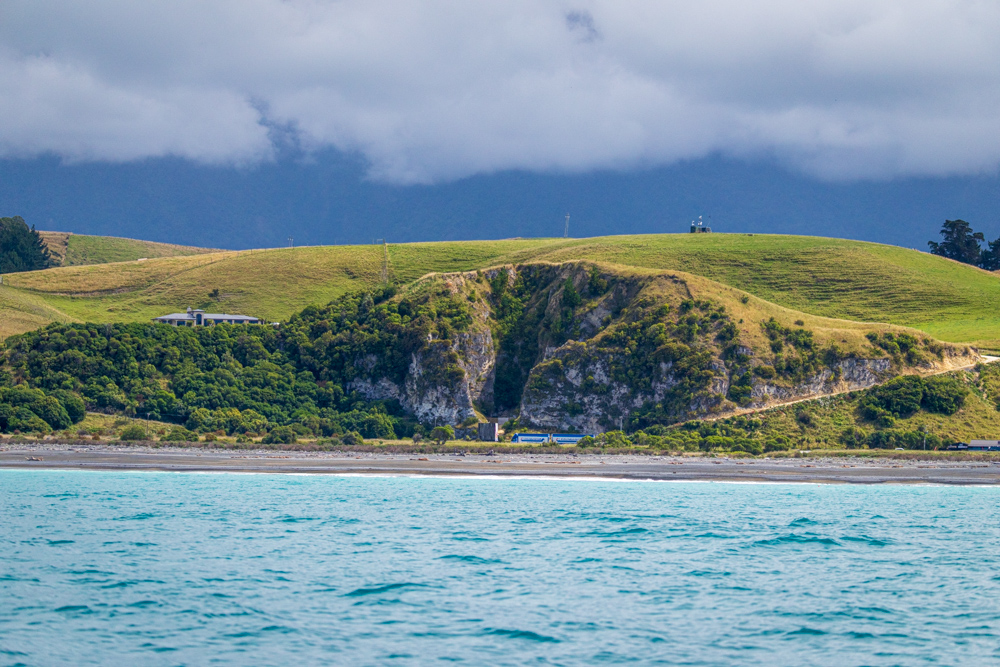
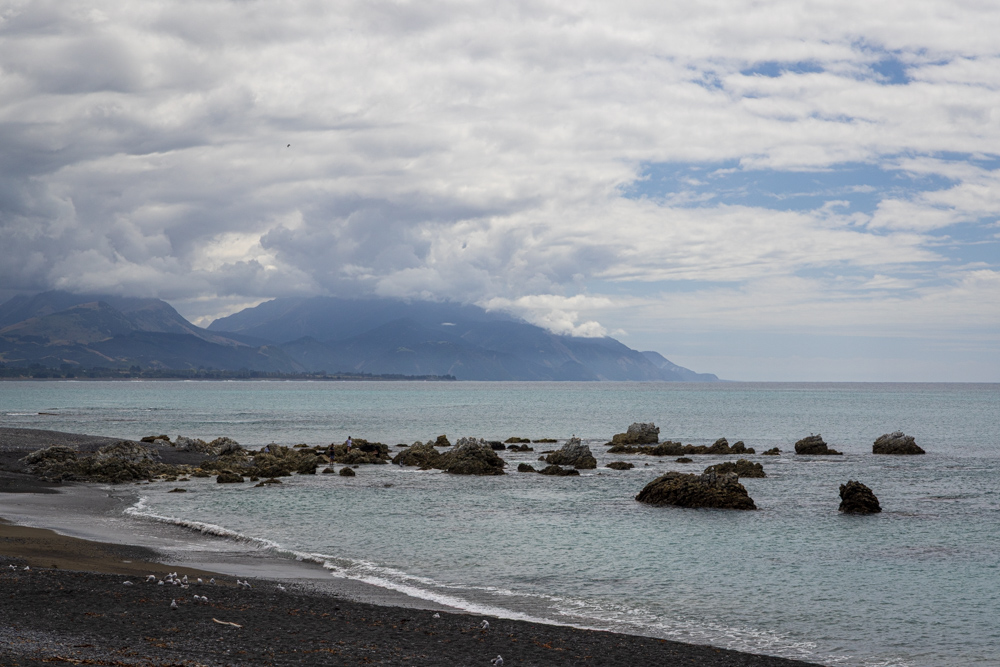
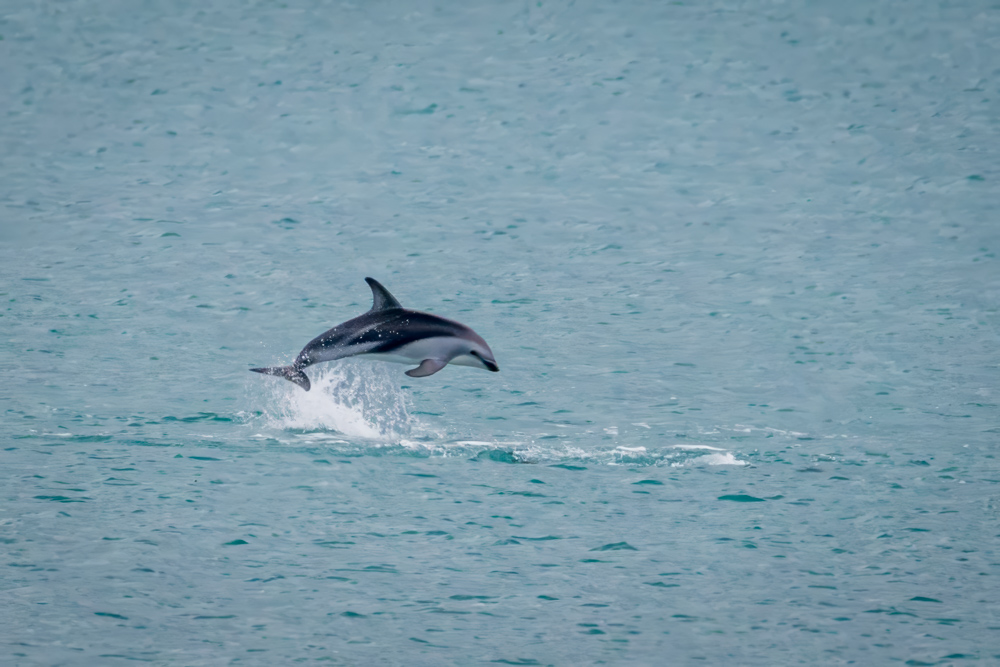
This was taken from a very long distance - see the next picture.
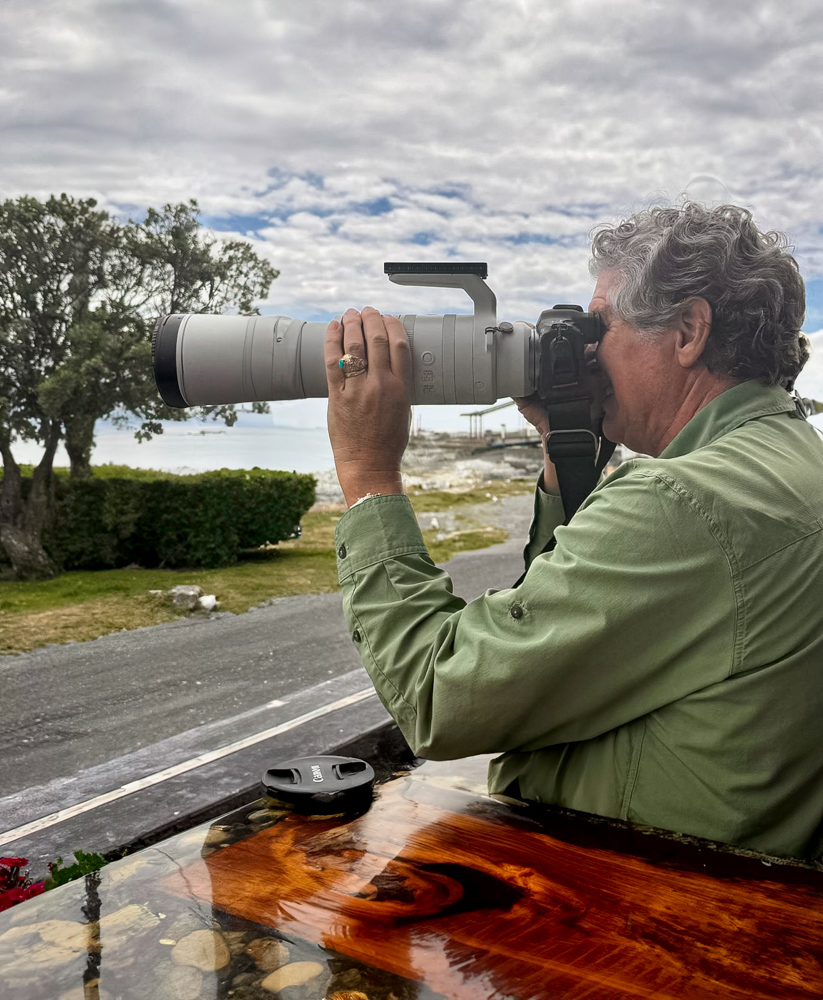
We were having lunch on the patio with a great view of the bay. Rosemary Milton snapped this picture after pointing out the playful dolphins.
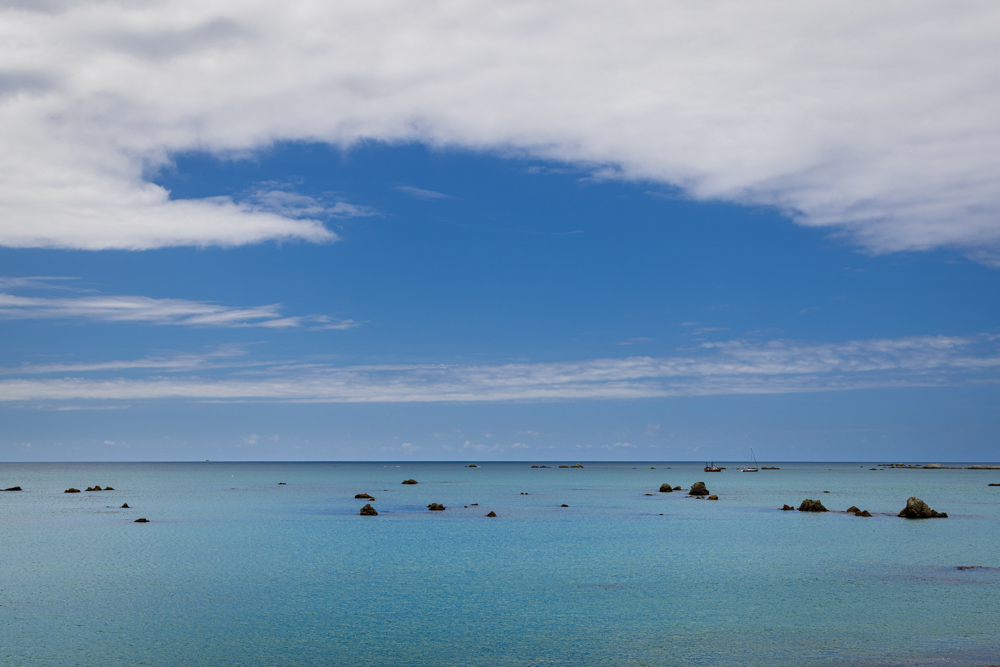
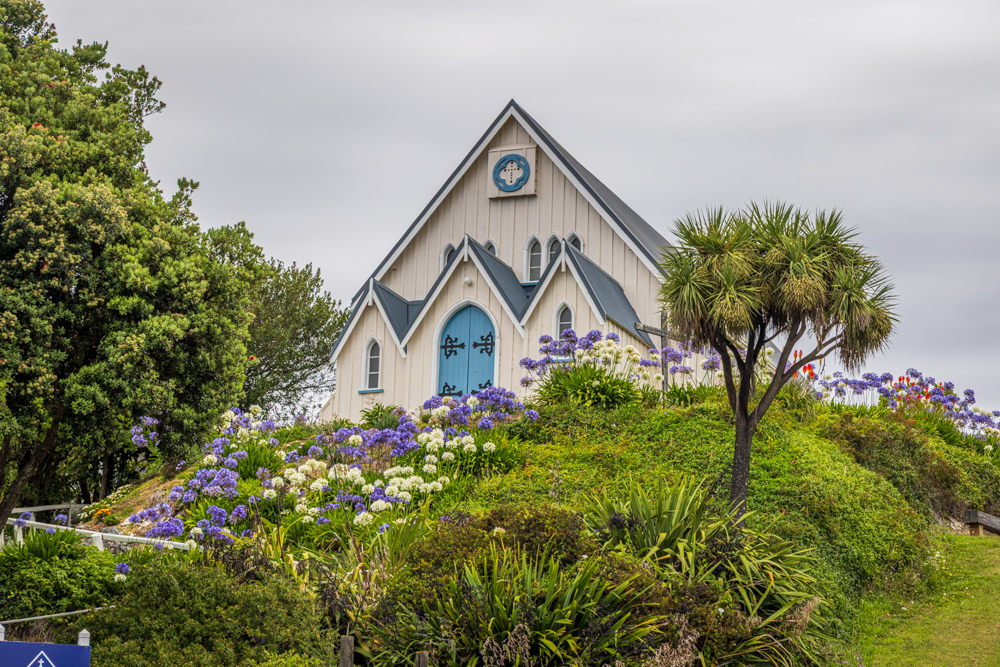
St Paul's Church was established in Kaikoura in 1877. It was 1879 when the first version of this building opened. The first minister was Reverend William McAra, a Scottish missionary student, who stayed for the 45 years.
